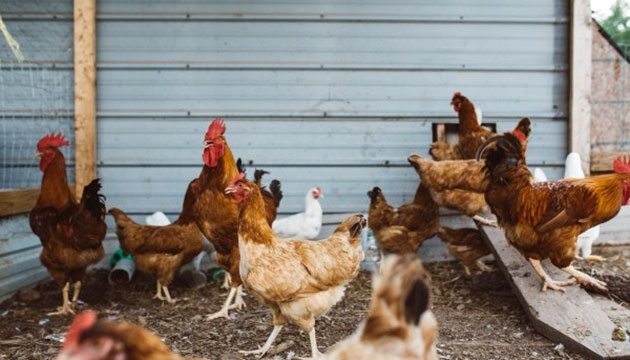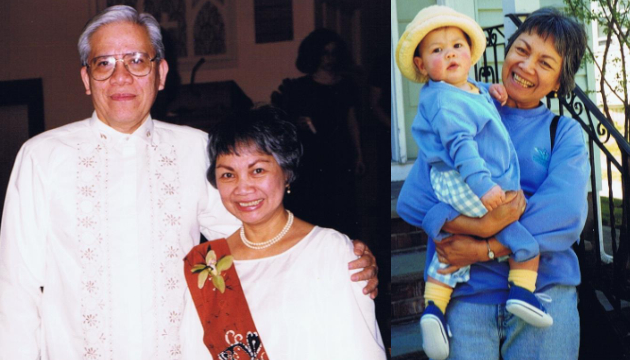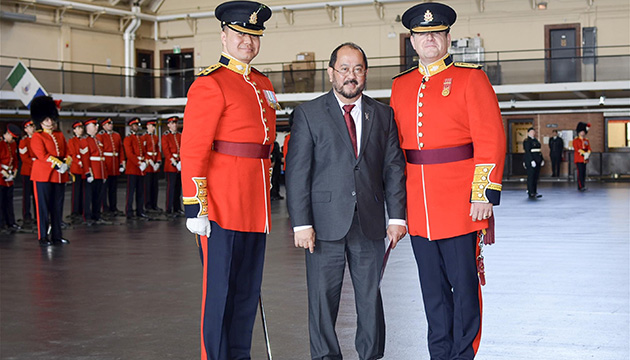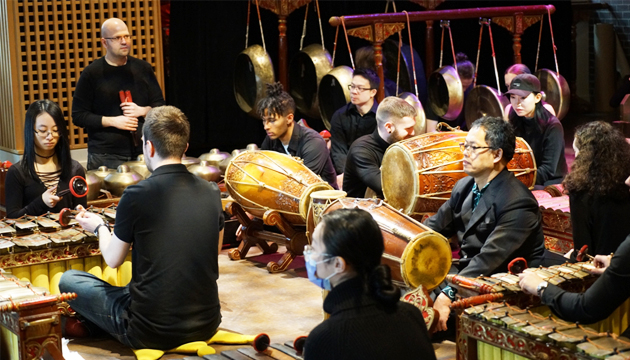Chicken-catching is a job catching chicken in barns for processing. It is not a glamorous job. Some call it 3-d: “dirty, dusty and dangerous”. It is night work. Not many apply for these jobs locally.
The Canadian Agricultural Human Resource Council forecasts that “By 2025, the number of domestic workers available in this industry will decrease from 15,900 to 14,800, widening the labour gap to 1,100 workers.” Hence the increase in demand for temporary foreign worker chicken catchers.
Filipino temporary foreign workers are gainfully employed in this occupation. I spoke to some recently. They preferred to speak anonymously.
The Job of Chicken-Catching
According to the Filipino chicken catchers I spoke to, chicken-catching is a relatively easy job. It involves catching chickens roaming in a large barn at night when the chickens go blind and are easy to catch. There’s a red light for the catchers to see. The catchers herd the chickens toward a certain area, then a rack of cages comes down closing off the area, which lets the catchers pick the preferred chickens and stuff them into the cages about seven to a cage. They catch the male chickens because they are bigger, more ready for eating, and if they are not caught, they will eat more of the food that otherwise could be eaten by the female chickens. When the cages are filled, the chickens are lifted by a hoist and taken away for processing.
Chicken catchers work in special outfits to protect them from the environment in the barn where the temperature is high, the floor is made of sawdust, which, when mixed with chicken poop and manure produces an ammonia-like smell. They wear masks and gloves to protect themselves from chicken scratches when chickens struggle.
Chicken-catching used to be mechanized. It was done by a big machine that worked like a vacuum and sucked the chickens ready for harvest. But that system damaged the chickens, reduced the quality of the chicken meat, and did not distinguish between preferred chickens for harvest and those not preferred. Hence, farmers decided to hire human chicken catchers.
The Lure of Chicken-Catching as Temporary Foreign Work
The qualifications for chicken-catching are minimal. Yet many Filipinos desperate to seek a better life abroad apply for the job despite their skilled backgrounds and high level of education. Canada is particularly attractive to them because they have heard that you can become a permanent resident someday, unlike in Saudi Arabia, Taiwan or Dubai.
The chicken catchers I spoke to spent hundreds of thousands of pesos, selling off their homes to pay immigration consultants and agents to come to Canada as temporary foreign workers. Some ended up arriving in Canada with the promised job non-existent, and have had to wait for three months with no income and no housing until a job was found.
I asked the Filipino chicken catchers about the infamous story of chicken abuse by certain chicken catchers profiled in the CBC story a few months ago. They said that those were not Filipinos. They said Filipinos are caring about the chickens and that is why employers like hiring them.
Chicken catching is a ‘good deal’ for temporary foreign workers
The Filipino chicken catchers said that the benefits of working as chicken catchers are good: starting wage is $13.50 per hour, for supervisors, $18 per hour or more, and catchers can rack up 60 – 100 hours a week, working several barns a night if they wish, on good days. Housing is subsidized – they live in company trailer homes on site where they can make their own food. Chicken and eggs are free. Accommodations are dormitory style and shared room, for a rental of $120 per month. The employer pays for Medical Services Plan. Their days off are Friday and Saturday, when they go and join sports tournaments organized by Filipino groups. Indeed a nice setup to save up money to send home.
What’s the catch?
As “low-skilled” temporary foreign workers, they can’t apply for open work permits or permanent residence unless they get themselves reclassified as “high skilled workers” with the current employer, or find an employer who would hire them as ‘high-skilled workers’. For another employer to hire them, the employer needs to prepare a Labor Market Impact Assessment to make a case for hiring them, an extra step for the employer and is therefore not an easy option for temporary foreign workers. They also need to pass a special English benchmark test.
Without these, they have to return home after their term of two years as temporary foreign workers, or if they are renewed by their employers, after four years. Considering how much they have already invested in coming to Canada, including the emotional toll of separating from their families, returning after two or four years does not seem ‘worth it’.
A way to get classified as ‘high skilled agricultural workers’ is to get promoted to a supervisory position. Several of the chicken catchers I spoke to have already been promoted to supervisors. They had agriculture degrees coming from the Philippines, with extensive experience in sustainable agricultural practises. They feel they have earned the respect of their employers and feel assured that after two years of supervisory experience, they can apply for open work permit and be eligible for permanent resident status.
Not all temporary foreign workers have it as sweet as the above. For those who can’t be classified high skilled, it is a challenge. The government doesn’t make it easy. Temporary foreign worker opportunities are intended to provide employees in sectors where local candidates are not available such as chicken-catching. If Government makes it easy for chicken catchers to obtain open work permits and thereby be eligible for permanent residency, wouldn’t chicken catchers leave their jobs for other jobs, thus defeating the program?
Not so, the chicken catchers said. If they had a chance for an open work permit, what they would likely do is keep their chicken-catching jobs, because they consider it ‘a good deal’, and simply get another job.
A Possible Way In?
The chicken catchers pointed out a discrepancy in policy: caregivers are classified as temporary foreign workers, yet they are allowed to apply for permanent residency after two years of caregiving work. Not so for temporary foreign farm workers. Why is that, they ask? Temporary foreign farm workers like chicken catchers are just as necessary for Canada’s economy as caregivers. Why discriminate against them by not giving them an accessible opportunity for remaining in Canada just like the caregivers have?
A good point, and something for the Canadian Government to think about.














